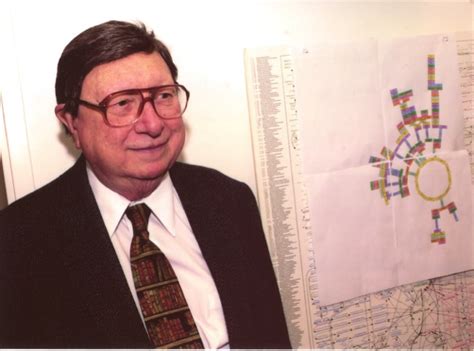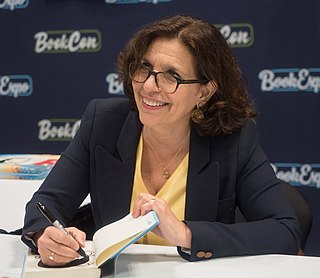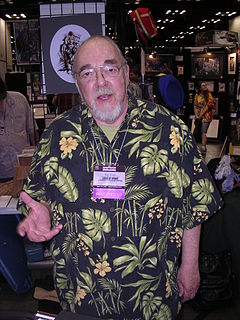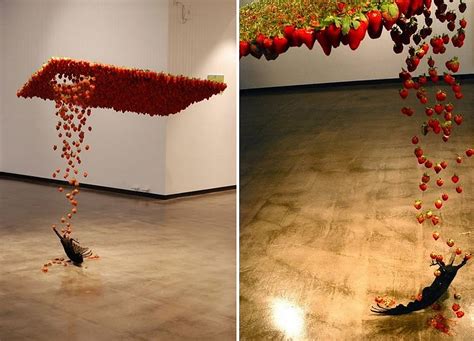A Quote by Fred Hoyle
Life cannot have had a random beginning. ... The trouble is that there are about two thousand enzymes, and the chance of obtaining them all in a random trial is only one part in 10 to the 40,000 power, an outrageously small probability that could not be faced even if the whole universe consisted of organic soup.
Related Quotes
Imagine 1050 blind persons each with a scrambled Rubik's cube, and try to conceive of the chance of them all simultaneously arriving at the solved form. You then have a chance of arriving by random shuffling, of just one of the many biopolymers on which life depends. The notion that not only the biopolymers but the operating program of a living cell could be arrived at by chance in a primordial organic soup here on the Earth is evidently nonsense of a high order.
The likelihood of the formation of life from inanimate matter is 1 to a number with 40,000 noughts after it (1040,000).... It is big enough to bury Darwin and the whole theory of evolution. There was no primeval soup, neither on this planet nor any other, and if the beginnings of life were not random, they must therefore have been the product of purposeful intelligence.
I began in 1976, with small abstract paintings that allowed me to do what I had never let myself do: put something down at random. And then, of course, I realized that it never can be random. It was all a way of opening a door for me. If I don't know what's coming - that is, if I have no hard-and-fast image, as I have with a photographic original - then arbitrary choice and chance play an important part.
No, no, it's not all random, if it really was all random, the universe would abandon us completely. and the universe doesn't. it takes care of its most fragile creations in ways we can't see. like with parents who adore you blindly. and a big sister who feels guilty for being human over you. and a little gravelly-voiced kid whose friends have left him over you. and even a pink-haired girl who carries your picture in her wallet. maybe it is a lottery, but the universe makes it all even out in the end. the universe takes care of all its birds.
Any one who considers arithmetical methods of producing random digits is, of course, in a state of sin. For, as has been pointed out several times, there is no such thing as a random number - there are only methods to produce random numbers, and a strict arithmetic procedure of course is not such a method.
The odds against life in the universe are simply astonishing. Yet here we are, not only existing, but talking about existing. What can account for it? Can every one of those many parameters have been perfect by accident? At what point is it fair to admit that science suggests that we cannot be the result of random forces?
There is a radical and unprecedented shift [in war] that is part of the general transformation of civilization. First, understand that the past 150 years of warfare are totally unprecedented in that we introduced a breathtakingly inefficient technology: guns. In the First World War, and this is not an exaggeration, it took 10,000 rounds of ammunition to kill one person. Any given shot had a one in 10,000 probability of ending someone's life.


































